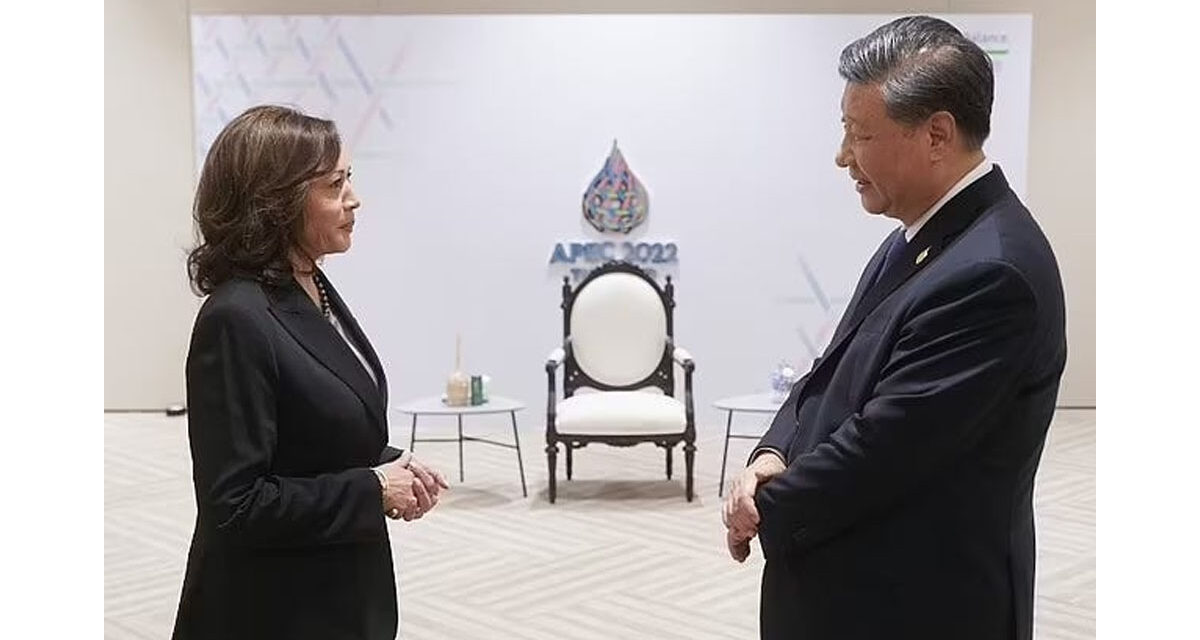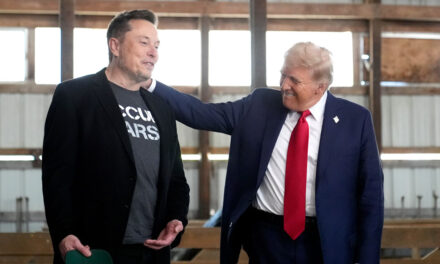
Kamala Harris’ Policy on China: A Detailed Overview

As U.S. Vice President Kamala Harris steps into the spotlight with President Joe Biden’s endorsement for her presidential candidacy, the world watches closely to see how her foreign policy, particularly towards China, will unfold. Analysts predict that Harris will likely continue the Biden administration’s current stance, maintaining a tough but strategic approach towards one of America’s most significant global competitors.
Economic Relations
Harris has been vocal about her approach to U.S.-China economic relations. In September 2023, during the ASEAN summit in Jakarta, she emphasized that the U.S. policy is not about decoupling from China but rather “de-risking.” This strategy focuses on protecting American interests and ensuring that the U.S. remains a leader in international trade rules. “It’s not about pulling out, but it is about ensuring that we are protecting American interests, and that we are a leader in terms of the rules of the road, as opposed to following others’ rules,” she said.
Harris also highlighted the importance of stability and adherence to international norms, suggesting that American businesses might reconsider investing in China due to its economic instability and unpredictable policies. “There is increasingly an understanding that China may not be the best bet when you are looking for stability, when you are looking for an investment in a place where there is an adherence to and respect for international rules and norms,” she added.
International Aid and Debt Relief
In March 2023, during a visit to Africa, Harris subtly referenced China’s role as Zambia’s top foreign creditor while advocating for meaningful debt relief for Zambia. Although she downplayed the notion that her presence in Africa was about countering China, her comments reflected a broader strategy to mitigate China’s influence in developing nations through economic aid and support. At a news conference with Zambian President Hakainde Hichilema, Harris reiterated her call for “all bilateral official creditors to provide a meaningful debt reduction for Zambia.”
US-China Relations and Communication
Harris’ first significant diplomatic encounter with Chinese leader Xi Jinping occurred at the Asia-Pacific Economic Cooperation (APEC) summit in Bangkok in 2022. She underscored the necessity of maintaining open lines of communication to responsibly manage competition between the two nations. “We must maintain open lines of communication to responsibly manage the competition between our countries,” she said. This approach signifies her commitment to diplomatic engagement despite underlying tensions.
Support for Taiwan
Harris has consistently reaffirmed U.S. support for Taiwan. In a 2022 meeting with South Korean President Yoon Suk Yeol, she reiterated America’s stance against any unilateral actions aimed at changing the status quo in the Taiwan Strait. Harris’ remarks during her visit to Japan, aboard the USS Howard, also highlighted concerns over China’s provocative actions in the region. “We have witnessed disturbing behavior in the East China Sea and in the South China Sea, and most recently, provocations across the Taiwan Strait,” she stated.
South China Sea and Regional Security
During her tenure, Harris has addressed China’s aggressive behavior in the South China Sea, accusing Beijing of undermining international rules and coercing its neighbors. She has pledged continued U.S. support for the freedom of navigation operations in the disputed waters, reinforcing America’s commitment to regional security and stability. “China is undermining key elements of the international rules-based order. China has challenged the freedom of the seas. China has flexed its military and economic might to coerce and intimidate its neighbors,” she said. “We will continue to fly, sail, and operate undaunted and unafraid wherever and whenever international law allows.”
Human Rights and Legislative Efforts
Harris has a strong record of advocating for human rights, particularly in Hong Kong and Xinjiang. As a U.S. senator, she co-sponsored the Hong Kong Human Rights and Democracy Act and the Uyghur Human Rights Policy Act, both of which aimed to impose sanctions on Chinese officials responsible for human rights violations. These legislative efforts underscore her firm stance on holding China accountable for its actions.
During her tenure as a U.S. senator for California, Harris actively pushed for legislation to uphold human rights in Hong Kong. In 2019, she co-sponsored the Hong Kong Human Rights and Democracy Act introduced by Republican Senator Marco Rubio, which aims to promote human rights in Hong Kong and sanction officials involved in “undermining Hong Kong’s fundamental freedoms and autonomy.” The bill was later signed into law by then-President Donald Trump.
Harris also co-sponsored and facilitated the passage of the Uyghur Human Rights Policy Act of 2019, which became law in 2020. The bill authorizes the United States to impose sanctions on “foreign individuals and entities responsible for human rights violations in Xinjiang,” China’s westernmost province that is home to the ethnic Uyghurs, a mainly Muslim minority.
China’s Perspective on Harris
From the Chinese viewpoint, Kamala Harris is seen as a continuation of the current U.S. administration’s policies. Chinese state-backed media outlets have portrayed her as a less formidable opponent compared to Donald Trump, suggesting that her candidacy does not pose a significant threat to China. Analysts in China predict that her policies will largely mirror Biden’s, focusing on strategic competition and economic de-risking rather than drastic decoupling.
Shen Dingli, an international relations analyst based in Shanghai, noted that Harris might propose tougher policies on China, including higher tariffs on Chinese products, similar to what former President Donald Trump imposed. “Harris will do it even more harshly than Biden to compete with Trump,” he said.



























I must give Oliver credit. He has produced (or his AI) a great commercial for Harris!! As an Independent/Unaffiliated voter, I am in favor of derisking over decoupling. The only thing I would add is some strategic decoupling in certain areas like pharmaceuticals, military parts and supply, critical infrastructure equipment like harbor cranes for unloading ships, and anything that requires connecting to the internet – the risk is when your device has to connect to the internet it gives opportunity for prying eyes. I would also derisk industry from hiring abroad for critical positions that require access to intellectual property. But for things like tools, toys, appliances etc that do not need internet connectivity to update software, fine if the company wants to have it made in China. I will still look for an American company to buy from.
Let’s all take a deep breath and remember Trump’s lost trade war with China. Remember who actually paid the tariffs.
And then take a second deep breath and realize that India and China will both be economies that will one day surpass the USA Its because of the numbers. They simply have 4X the number of people. It would take generations of very high birth rates to catch up to their population. So policy that supports international rules that are fair to everybody is the way to go. Derisking rather than decoupling is a better long range strategy.
Great Harris commercial!!! Thank you for informing me of all of Harris’s work in these areas!!!
Tom, when did you become so in love with Harris? Do you want her to become a president? Please make yourself more clear in this matter – thanks.
I’m still waiting for your reply, Tom. You are showing your true colors by not answering me. I WAS trying to be nice. Your turn!
AF: Is it nice to demand an answer within three hours?
Yeah, unless Harris picks Satan to be the vice president, I will probably vote for her.
However, I’m still trying to figure out if she’s black because Donald Trump seems to think color is important. And then I noted that you were very interested in people showing true colors as well and wondered if that’s the same as Donald Trump?
I think it’s a fools mission to judge talent based on gender or race. I prefer looking at things like education, accomplishments, experience,. In which case, she is eminently qualified.
Again, I am waiting to see the vice presidential selection, but realize almost anyone that’s picked will be more qualified than JD Vance or whatever he’s calling himself today. Speaking of colors, he colors himself Appalachian, many folks in Appalachia differ on that opinion. Maybe it’s the location that he grew up, maybe it’s his elite education, maybe it’s the fact that he is being an angel by Silicon Valley billionaires. Sure don’t look Appalachian to me.
StetsyBaby, I didn’t think you would answer back. And you proved me right. You didn’t! For shame, for shame.
AF: Congrats on your success in whatever you make believe.